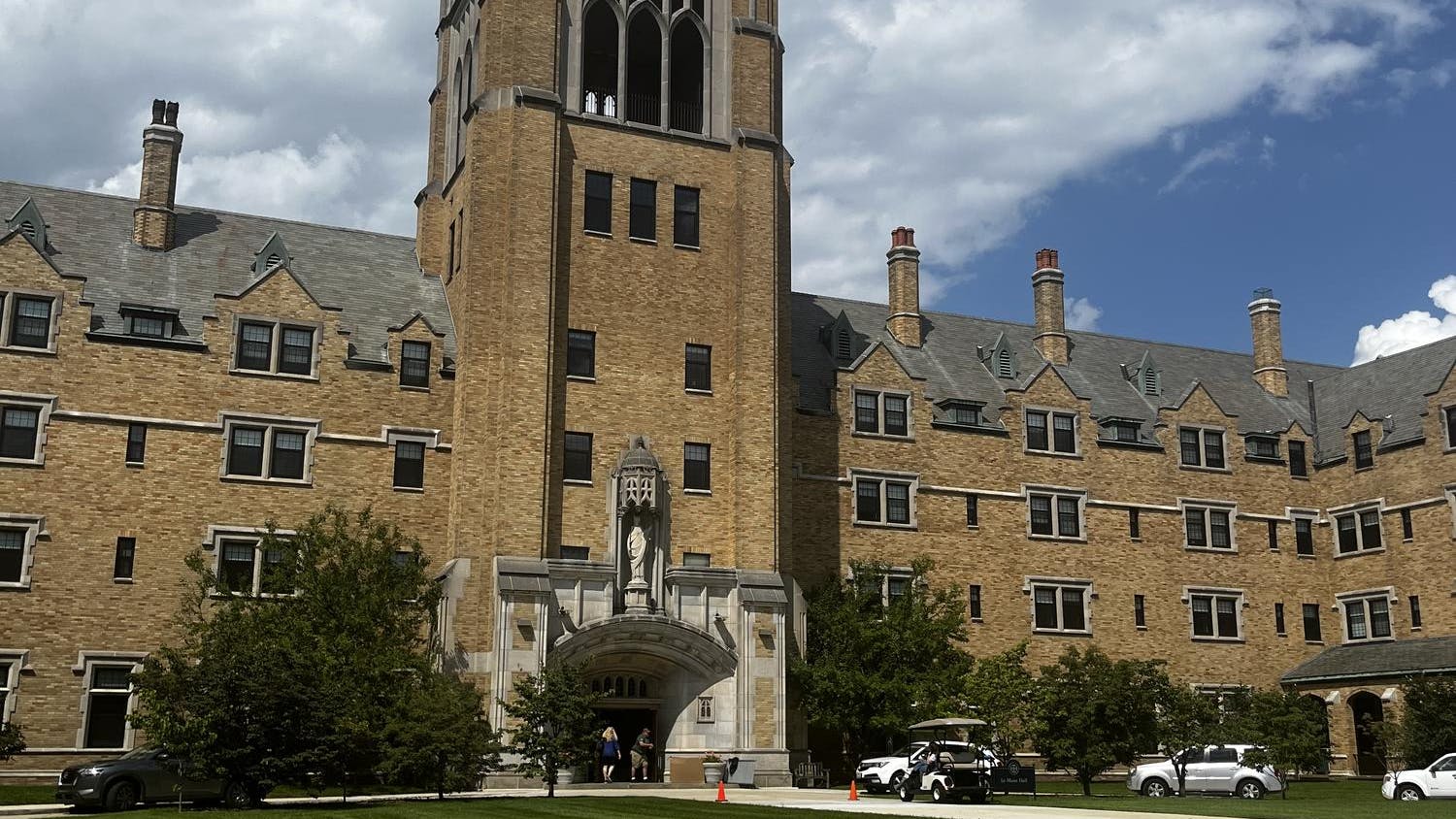A diverse group of Notre Dame professors gathered Tuesday to defend their respective majors as the most useful tool to rebuild society if the world ended today.
Before the debate began, the professors agreed all majors have their merit.

"I don't believe universities offer frivolous majors," Shahriar Mobashery, professor of biochemistry, said. "If civilization were to end, we need all the disciplines to rebuild it."
But Mobashery argued the field of chemistry is important in general because it gives chemists analytical ability and a sense of wonderment.
Chemistry instills in its students two distinct abilities — the ability to understand how things are and the ability to change things to improve their qualities. One is discovery and one is inventiveness, he said.
Michael Hildreth, associate professor of physics, argued the merits of his field and said physics helps mankind at the most basic level, such as producing flame. Hildreth lit a piece of paper on fire in the debate to illustrate his point.
In addition, he said technology allows civilization to grow and thrive, and increasing technological progress has accelerated due to discoveries in the physics realm.
Hildreth said physics contributed to the development of the transistor that enabled the creation of computer chips, like those found in the iPhone.

In response, Mobashery said chemists inspire the very essence of an iPhone.
"From the screen dominating the front of the phone, which is layer upon layer of chemicals helping to produce the images you see, to the electronic elements critical to the phone's proper functioning, everything has been influenced by the hands of a chemist" Mobashery said.
Robert Goulding of the Program of Liberal Studies (PLS) said his major would view the end of the world a little differently.
"If civilization ended tomorrow, I would be in a great deal of trouble," he said. "I'm not very practical, my students aren't very practical … PLS doesn't concern itself with the question of how to stay alive, rather we're concerned with the question of how to live well. If we face the end of civilization, we must not only discover how to stay alive, but how to live well."
Business law professor Jamie O'Brien focused on food as a human necessity and said accounting helps people obtain food.
"How many of you ate today?" he said. "How many of you think you're going to eat tomorrow? That's why you need accounting. Pretend you have 20 quarters in your pocket and you go through the drive-through of McDonalds and order a Big Mac. Say it costs $3.50. Do you have enough? Do you have enough to consume today and have some money left over for tomorrow?"
Associate professor Gabriel Reynolds, a faculty member in the Department of Theology, grounded his argument for theology on a letter he found earlier in his office.
"What if every single person is precious to God?" he said, citing the letter. "Wouldn't it be cool if people discovered this God who cared so much that he cried for them? Wouldn't it be hopeful having this knowledge?
"I'm going to pursue the study of the real light of the world."
Before Vice President of Student Affairs Fr. Tom Doyle announced the winner, anthropology professor James McKenna ended the debate by advising students to pursue their passions and reminding them about the importance of approaching the problems and questions of civilization through a comprehensive approach.
"The best science is an inclusive one, and moreover, they are all interdependent," McKenna said. "You will make your greatest contributions to humans by finding out what you love."
In the end, the student audience chose Reynolds as the winner of the debate.
In his victory speech, Reynolds said he couldn't take all the credit.
"If you permit me to make a triumphal decree, I would simply like to thank the student who wrote the letter," he said.












